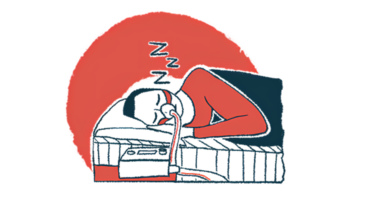Phase 3 Trial of Potential Prader-Willi Treatment LV-101 Enrolling Participants

A Phase 3 trial of Levo Therapeutics‘ treatment candidate LV-101 (intranasal carbetocin) is enrolling participants ages 7-18 with Prader-Willi syndrome.
Patients are being recruited at the University of Florida and Vanderbilt University, with Levo anticipating additional study sites to open. Updates on trial sites can be found on the study’s webpage and on Levo’s site. The team expects to recruit 175 participants.
LV-101 is a formulation of carbetocin, a compound engineered to work in a way similar to that of the naturally occurring neuroendocrine hormone oxytocin. The smaller number of oxytocin-producing brain cells in Prader-Willi patients could be part of the reason for their social, emotional and feeding difficulties.
Carbetocin is intended to outperform oxytocin’s binding to its receptor and to have lower affinity for the related vasopressin receptors. It is approved in the U.S. and some 90 other countries for the prevention of excessive bleeding during caesarean delivery and reduced tone of uterine muscles.
The CARE-PWS study is a multi-center, randomized, double-blind trial of LV-101 (NCT03649477). The investigational therapy’s effectiveness, safety and tolerability will be assessed over eight weeks and compared to placebo.
A long-term follow-up period of 56 weeks will start at week eight, in which the patients previously on placebo will also start receiving one of the two LV-101 doses, given three times daily before meals.
To assess the treatment’s effectiveness, the researchers measure both caregiver-reported and clinician-reported measures of extreme hunger, obsessive and compulsive behaviors, and anxiety. The safety and tolerability of LV-101 will be evaluated by looking into adverse events, laboratory tests, and physical exams.
“[Excessive hunger], obsessive and compulsive symptoms, and anxiety are debilitating symptoms of the syndrome,” Jennifer Miller, MD, of the University of Florida in Gainesville, said in a press release. “We are excited to participate in the CARE-PWS study, which aims to treat these symptoms.”
Phase 2 results (NCT01968187) showed that LV-101 can ease Prader-Willi symptoms in children, including their uncontrolled urge for food and excessive eating. The data also suggested lessened obsessive-compulsive behaviors and improved overall functioning. The safety profile of LV-101 matched prior data and no severe treatment-related adverse events were found.
“We are excited to bring intranasal carbetocin back into the clinic following the successful Phase 2 study,” said Sara Cotter, Levo’s CEO. Cotter also said that Levo “is committed to developing impactful treatments for patients with PWS,” with the start of the Phase 3 study representing “an important step toward this goal.”
Elizabeth Roof, of Vanderbilt University, said: “After participating in the positive Phase 2 study of intranasal carbetocin, we have been eager to help advance this program as a Phase 3 clinical site.”






